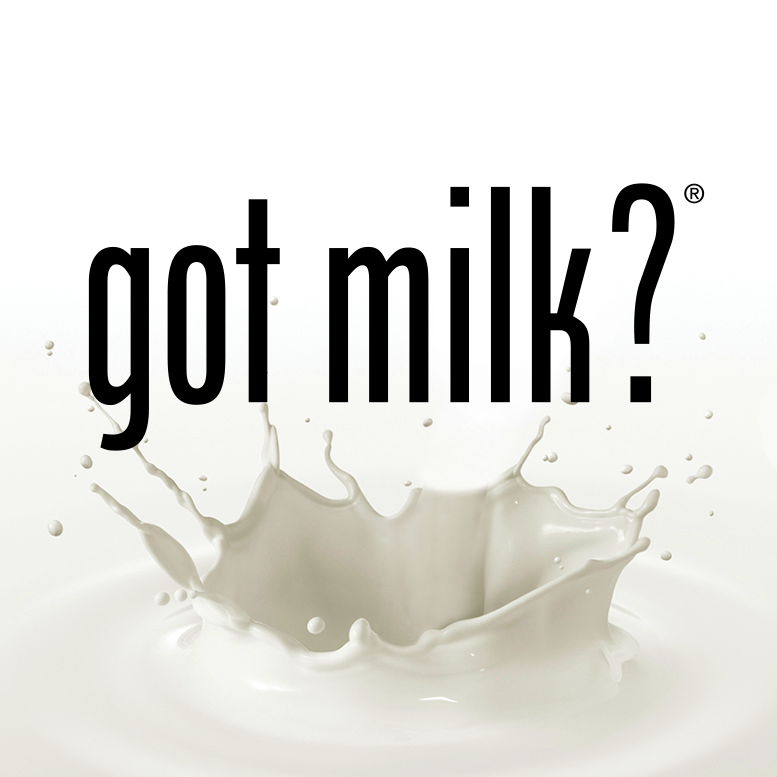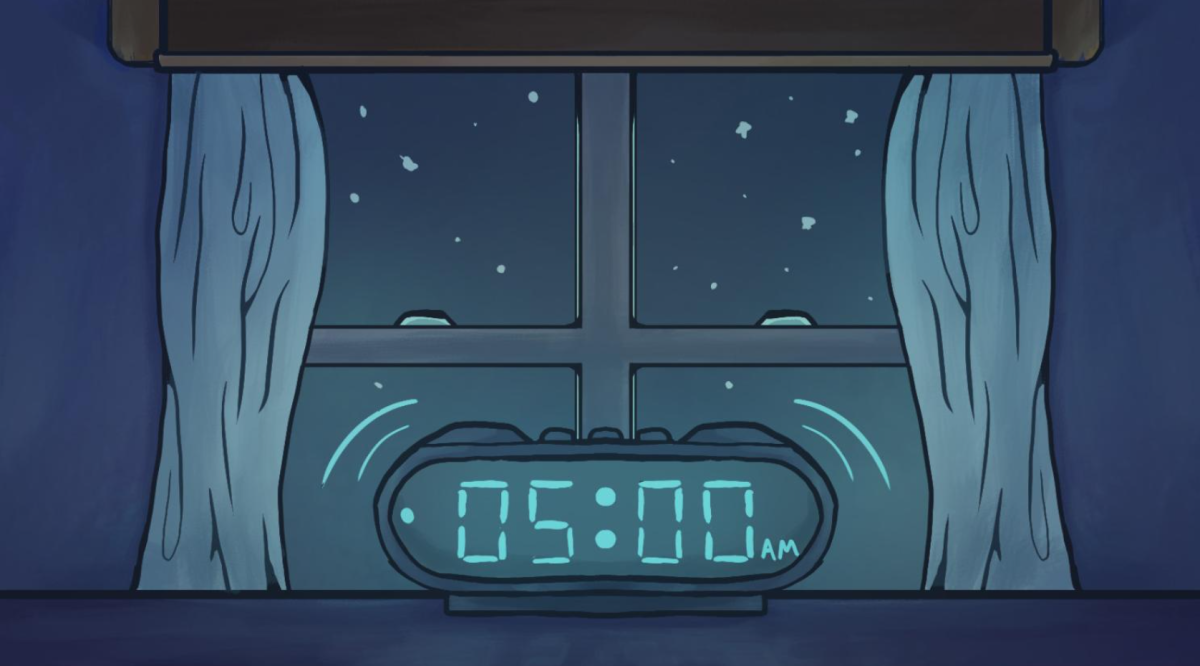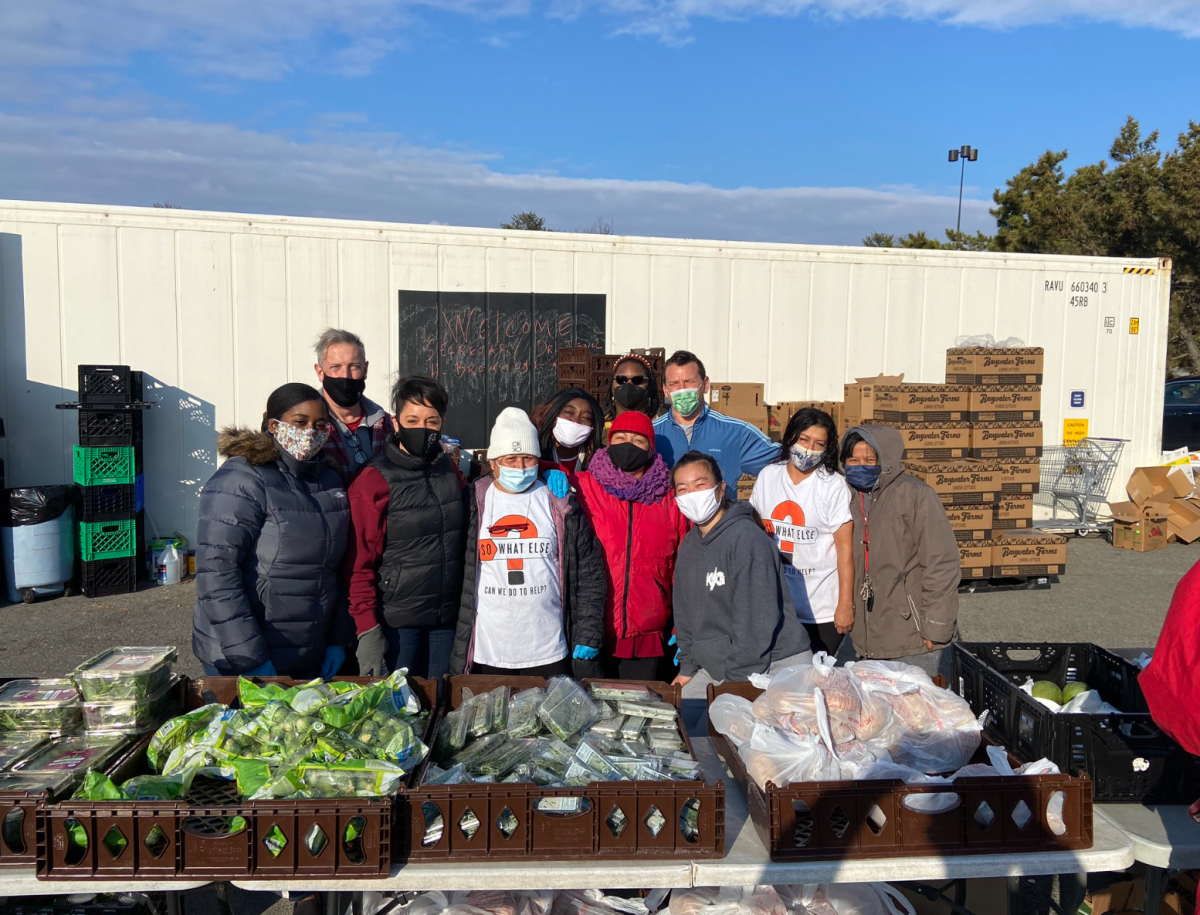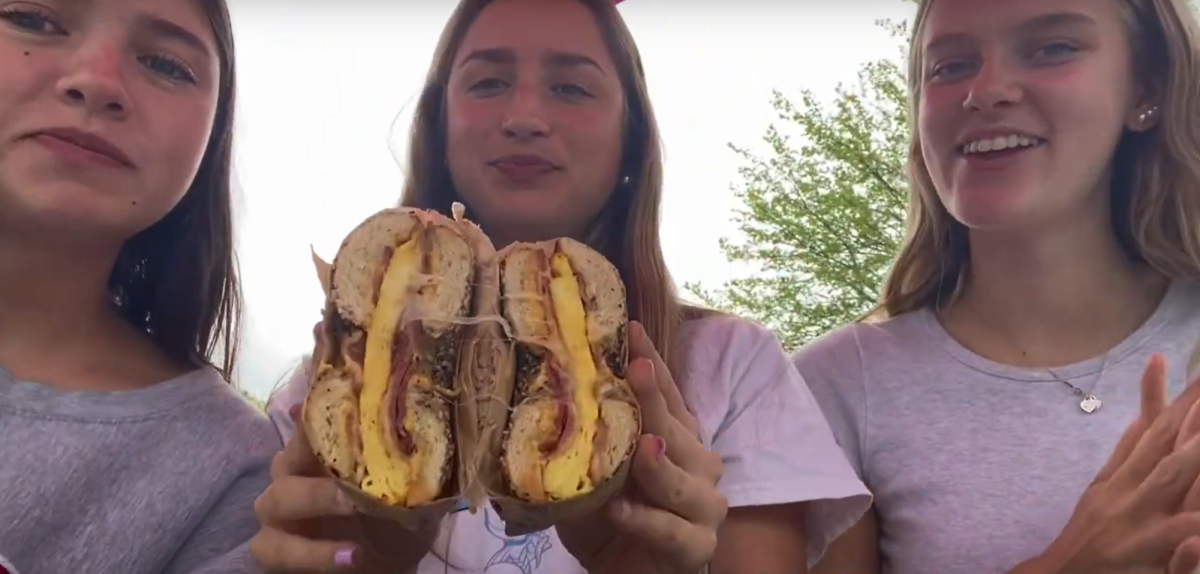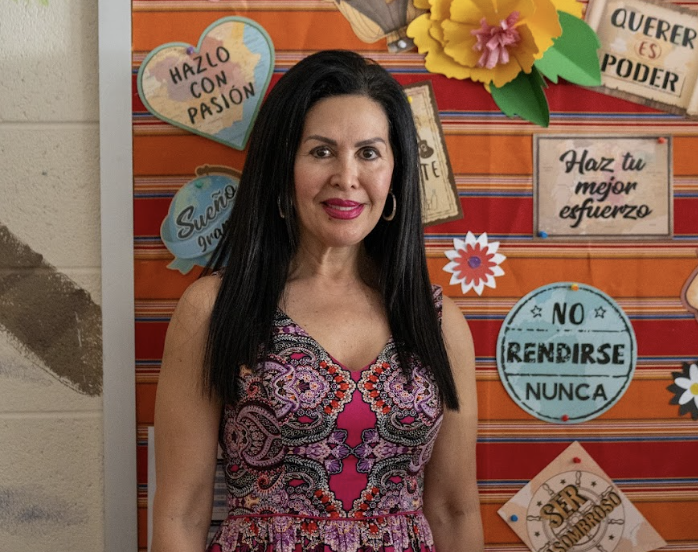In a 1993 commercial, a frenzied historian devours his peanut butter sandwich as his telephone rings. It’s a radio station calling in to ask if he knows the answer to their $10,000 question. He eagerly blurts out the answer, but his full mouth muffles his response. He quickly reaches for his milk carton, but it’s empty, costing him the cash prize. Seconds later, the words “Got Milk?” solemnly appear on the screen.
This ad was one of the Milk Processor Education Program’s (MilkPEP) first as part of their “Got Milk?” marketing campaign. The simple question became widely known as the program released synonymous ads of celebrities posing with milk mustaches in magazines and on TV.
By the mid-90s, 91% of adults surveyed in the U.S. were familiar with the “Got Milk?” campaign. However, the commercials and advertisements seemed more memorable than effective since, by the 2000s, America’s daily per capita consumption of fluid milk had fallen. As the “Got Milk?” campaign wrapped up in the 2010s, the dairy industry sought new marketing techniques to reach their new audience: Generation Z. This younger generation, however, wasn’t purchasing milk like previous ones. According to consumer market research company Circana, members of Gen Z bought 20% less milk than the national average in 2022. So why is Gen Z ditching dairy?
Some say Gen Z avoids milk because of the product’s adverse environmental effects, given the impact of the climate crisis they were born into. Following the United Nation’s “code red” report that called for immediate regulations restricting the level of worldwide greenhouse gas emissions, eight countries announced their pledge to cut methane emissions by 30% by 2030 at the 2021 UN Climate Change Conference. Reducing cattle livestock and, therefore, reducing nationwide meat and dairy consumption would make this feat possible. Many Gen Zers may feel compelled to do their part in combating climate change by not drinking or purchasing dairy milk.
Gen Z may also avoid milk due to its unhealthy aspects and instead turn to the myriad of milk alternatives. Milk made of plants, nuts, seeds and legumes are typically lower in calories, cholesterol and saturated fat than plain cow’s milk. These healthier options may draw in people who want to participate in the growing popularity of healthy eating trends. Many also blame dairy for a range of ailments, including acne, eczema and a variety of digestive issues, coinciding with society’s rising interest in gut health.
Most people used to perceive milk alternatives as just options for individuals with dairy intolerances, but the substitutes’ newfound popularity may be linked to their portrayal on social media. Wellness influencers, who present a glamorous lifestyle through their platforms, often post content consuming almond or oat milk in their latte or smoothie. Influencer Emma Chamberlin, who has over 12 million YouTube subscribers, became identifiable with the almond milk latte she frequently consumed in her lifestyle content, facilitating the launch of her coffee brand Chamberlain Coffee. Chamberlain also helped popularize almond milk by showcasing her enthusiasm for homemade almond milk and highlighting the convenience of Almond Cow’s almond milk maker on her YouTube channel. Influencers’ presentation of milk alternatives sways their younger audience not to consume dairy to feel in tune with the vogue. NielsenIQ reports that the alternative milk beverage industry reached $3.2 billion in total U.S. Omni Sales in 2023, an 11.1% increase since 2022.
Peer pressure has also contributed to Gen Z’s reduced dairy milk consumption; for some, drinking or buying milk feels embarrassing, so they get a milk alternative instead. Deseret News reported on a study that said 49% of Gen Zers “felt ashamed to order dairy in public in front of their peers,” and around 29% said they only ordered dairy alternatives in public and drank dairy privately.
When enjoying a meal with her friends, junior Sofia Antonioli orders a cold glass of plain milk. By now, she’s used to the weird looks and jokes made at her expense because of her choice of beverage, she said.
“I’m going to stick with my principles of liking milk and drinking milk, but I did feel a little ostracized at times,” Antonioli said. “When I’m with other people, they don’t see drinking milk as normal. It’s a completely different reaction.”
To overcome these generational obstacles and appeal to Gen Z, MilkPEP is updating its messaging. In their newest multi-media campaign, beginning in 2021, the milk industry no longer asks if Gen Z’s “Got Milk?” but instead tells them they’re “Gonna Need Milk!” while showing young people dabbling in various hobbies. MilkPEP is trying to rebrand milk as a sports drink to divert this generation’s preference for energizing and caffeinated beverages to milk, as one-third of Gen Z regularly consumes energy beverages. MilkPEP aims to spread the message that milk contains similar hydrating and energizing benefits through its advertisements.
In addition to fueling athletes in traditional sports, MilkPEP has begun marketing to e-sports players, sponsoring the 2022 TwitchCon in San Diego and becoming the official “performance beverage” of the gaming convention. The organization also enlisted top athletes to endorse the beverage and appear in their advertisements, including Olympic cyclist Kristin Armstrong, karate champion Ariel Torres and marathoner Yvonne Zapata.
Amidst their “Gonna Need Milk For That” campaign and sports theme, MilkPEP aims to uplift women in sports in their newer campaigns. To increase the notoriety of female runners, MilkPEP collaborated with agency Gale to launch its integrated “26.2” initiative. MilkPEP now sponsors every woman running marathons who sign up for “Team Milk,” while also launching the Every Women Sponsored Fund in a continued partnership with Girls on the Run, an organization dedicated to empowering young girls through running.
Senior Mia Sheetz’s mother has worked at MilkPEP for over 20 years as their Vice President for Research and Insight. Scheetz believes the unique marketing efforts of her mother’s organization will effectively garner more Gen Z milk drinkers.
“It makes you wonder, why is a milk education program doing a marathon? It doesn’t make sense, but it’s showing that milk empowers you,” Scheetz said. “This is the generation that’s losing interest in milk, and if they grow up only drinking almond milk, their kids aren’t going to drink real milk. These campaigns are breaking the cycle to make sure milk is still incorporated into people’s futures for their growth and nutrition.”
Pro-milk organizations have also invested in celebrity endorsements and satirical social media campaigns to attract the younger generation. In 2019, Dairy Management Inc. began working with MrBeast, a YouTuber with an amassed 50.1 million followers, to promote their #UndeniablyDairy campaign. The YouTube sensation also participated in a virtual dairy farm tour, followed by a sponsored video in which he spouted pro-milk facts as he challenged gamers in a dairy farm-themed game in Minecraft. This year, MilkPEP had a booth at the annual content creator convention VidCon for attendees to play its video game “Zany Ziplines” — a game concept the Gen Z-dominated Fortnite community highly requested. In continuation of the #UndeniablyDairy campaign, dairy marketing agencies sponsored TikTok chefs in 2022 to create content centered around dairy products.
Engaging celebrities in their advertisements seemed to work for previous generations in their “Got Milk?” ads, so MilkPEP is implementing a similar technique in its promotional content. In April 2020, they launched a spoof commercial plugging a fictional product called “wood milk,” starring Gen Z admired actress Aubrey Plaza. The commercial is a slight dig at non-dairy milk companies, as Plaza concludes the ad with “Is wood milk real? Absolutely not. Only real milk is real.” Award-winning actress and singer Queen Latifah also partnered with MilkPEP on a parody campaign to highlight “milk shaming.”
Although sales of conventional fluid milk products only increased by 0.3 percent in one year since Nov. 2022, milk’s modern rebrand and progressive campaigns speak to how Gen Z consumers influence industries. Many companies find they must appeal to this younger generation to remain profitable. Gen Z’s familiarity with advanced technology has exposed them to unique perspectives and designated them trendsetters, causing the generation to seek authenticity and modernity within the brands they consume and popularize.
For Scheetz, the rapidly evolving digital age Gen Z has grown up in and influenced will continue to be a determining factor in industries’ success, proving the younger generation’s large scope of influence.
“Trends are traveling at lightspeed because of social media, which people never had before. Ideas and innovations can be passed quickly, but so can fads,” Scheetz said. “It’s going to cause a lot of companies to chase the trend and not want to fall off. Falling out of the eye of the Gen Z consumer is something that’s going to be detrimental to an industry.”









